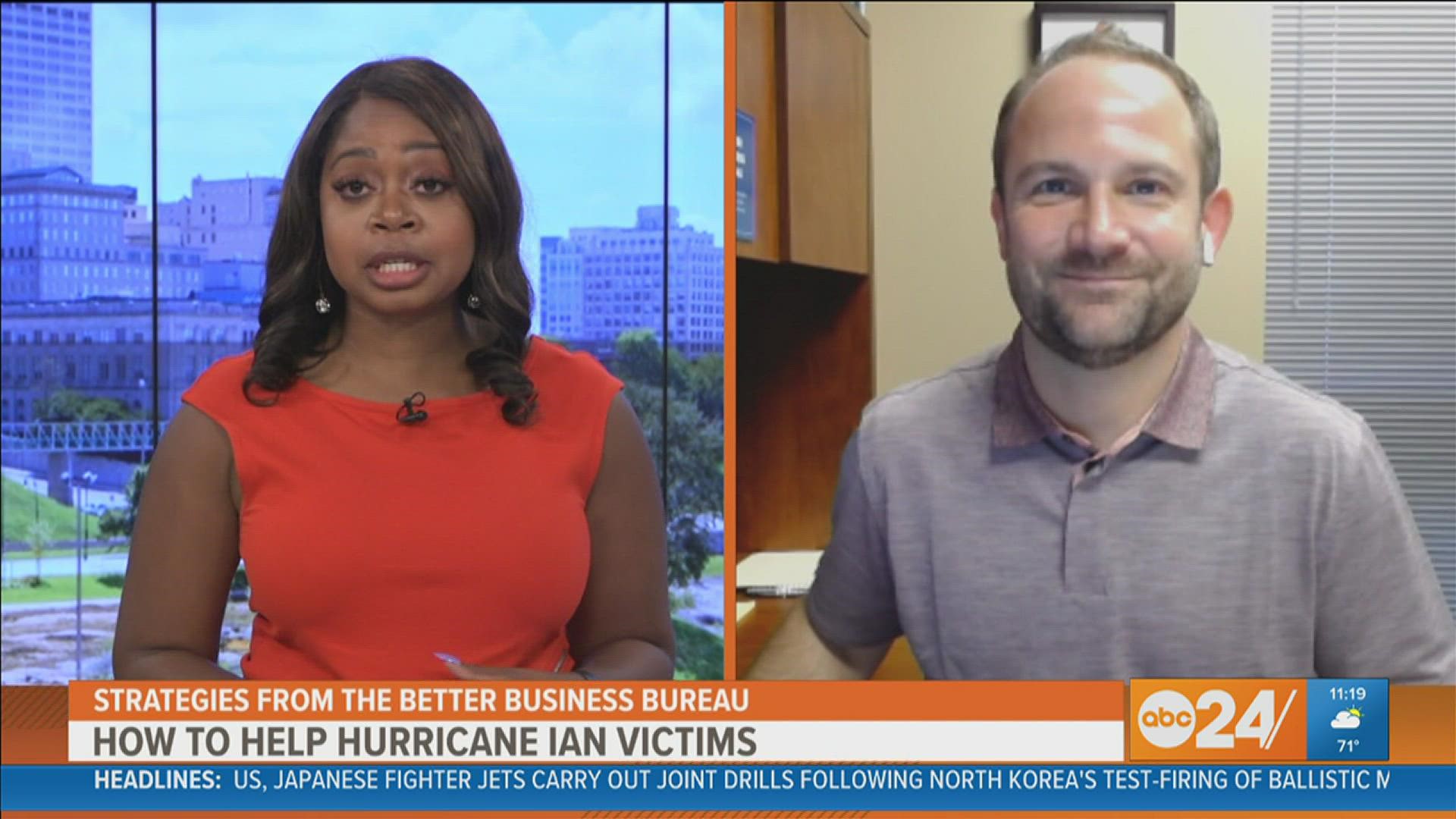MEMPHIS, Tenn. — In the wake of Hurricane Ian, relief organizations are actively supporting those in need. But be aware, scammers will often take advantage of these moments of vulnerability to deceive donors.
The FBI has issued multiple warnings to donors about fraud schemes following Hurricane Ian.
“Charity and disaster fraud can come in many forms - cold calls, emails, social media posts, and crowdfunding sites,” said Special Agent in Charge Douglas Korneski of the FBI Memphis Field Office. “While these scams can happen at any time, they are especially prevalent after high-profile disasters.”
ABC24 spoke with Daniel Irwin with the Better Business Bureau of the Mid-South (BBB) about what consumers need to know before donating.
The BBB said they have reports of people getting unsolicited calls from someone claiming to be "Florida Weather Relief Center.” They said the caller has a heavy foreign accent is very pushy while trying to get people to send donations to him through Cash app.
How to tell which charities and fundraising appeals to donate to
Established charities are more likely to have the experience to quickly address the circumstances. They have a track record that can be evaluated. Use the Federal Trade Commission's resources to examine the track record of a charity.
Crowdfunding sites are popular ways for people to directly donate, but people should be cautious if they do not personally know the individuals involved.
Tips for donating to hurricane victims
- Donate to Experienced Groups. Support experienced organizations that stand ready to provide quick and effective assistance. Be cautious of those that form overnight in the wake of a disaster.
- Watch out for organizations with copycat names or names similar to reputable organizations.
- Be Wary of 100% Claims. Watch out for claims that 100% of donations will assist relief victims. The organization is probably still incurring administrative expenses.
- Give Money Rather Than Goods. Donating money is the quickest way to help and provides charities the flexibility to channel resources to impacted areas.
- Use a check or credit card. If a charity or organization asks for donations through cash, gift card, virtual currency, or wire transfer, it's probably a scam. Learn more about this trick from the FTC.
- Crowdfunding sites are used to help share the stories of those in need. If giving, review the platform's policies and procedures.
- Watch out for vague appeals that don't identify the intended use of funds.
- Verify Trustworthiness. Rely on expert opinion when it comes to evaluating a charity. Find those that meet the BBB Standards for Charity Accountability at BBB's Give.org.
Some more good advice from the FBI
- Don't click links or open email attachments from someone you don't know.
- Manually type out links instead of clicking on them.
- Don't provide any personal information in response to an email, robocall, or robotext.
- Check the website's address—most legitimate charity organization websites use .org, not .com.
Report possible charity or disaster fraud to the National Center for Disaster Fraud at 1-866-720-5721 or online at the Department of Justice National Center for Disaster Fraud. Report suspicious email solicitations or fraudulent websites to the FBI’s Internet Crime Complaint Center.
The FBI Memphis Office and Better Business Bureau of the Mid-South contributed to this report.
RELATED: Yes, Publishers Clearing House mails postcards with activation codes. Here’s what they look like
RELATED: 5 ways to spot a paid survey scam

